If We Don't Stop Deforestation, What Percentage Of Animal Species May Die?
What would happen if all the world'south copse disappeared?
(Prototype credit:
Getty Images
)
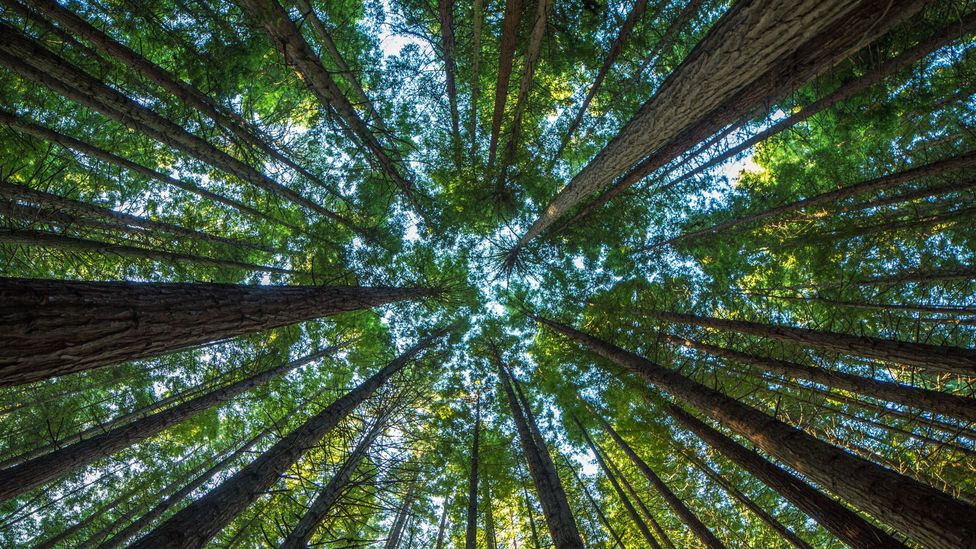
Every bit the Amazon fires go on to burn down, Rachel Nuwer asks: how dependent are we on the survival of forests?
I
In Mad Max: Fury Road, Charlize Theron'southward Furiosa strives to render to "the Greenish Identify" – a tree-filled oasis in the otherwise lifeless wasteland that the World has become. When Furiosa arrives at the sacred spot, however, she finds simply skeletal trunks and sprawling dunes. She screams in anguish. Without trees, all promise seems lost.
Furiosa's feelings were justified. "Forests are the lifeline of our globe," says Meg Lowman, director of the Tree Foundation, a not-profit organisation in Florida that is dedicated to tree enquiry, exploration and education. "Without them, nosotros lose boggling and essential functions for life on Earth."
Trees' services to this planet range from carbon storage and soil conservation to water wheel regulation. They support natural and human nutrient systems and provide homes for countless species – including us, through building materials. Nevertheless we often treat trees equally disposable: as something to be harvested for economic gain or as an inconvenience in the way of human being development. Since our species began practicing agriculture around 12,000 years ago, we've cleared nearly half of the world's estimated 5.viii trillion trees, according to a 2015 study published in the journal Nature.
You might as well similar:
- How Nippon'due south ancient trees could tell the future
- How plants reclaimed Chernobyl'due south poisoned land
- Why institute incomprehension matters – and what yous can practice nearly it
Much of the deforestation has happened in recent years. Since the onset of the industrial era, forests accept declined by 32%. Specially in the tropics, many of the world's remaining 3 trillion trees are falling fast, with about xv billion cut each year, the Nature study states. In many places, tree loss is accelerating. In August, the National Institute for Space Research showed an 84% increase in fires in the Brazilian Amazon rainforest compared to the aforementioned period in 2018. Slash-and-burn is too especially on the rise in Republic of indonesia and Madagascar.
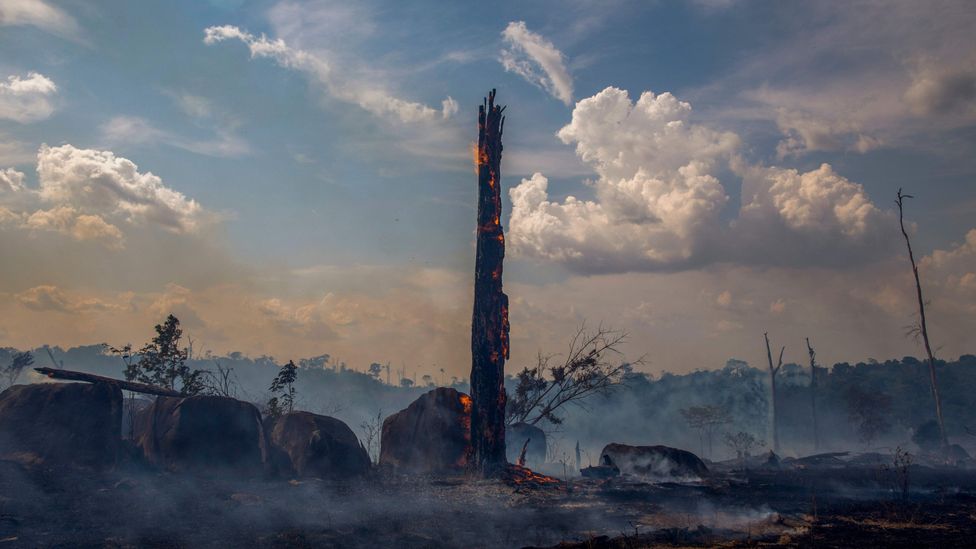
There have been more than than seventy,000 forest fires in the Brazilian Amazon in 2019 (Credit: Getty Images)
Disallowment an unimaginable catastrophe, yet, in that location's no scenario nether which nosotros would brutal every tree on the planet. Simply imagining a dystopian, Mad Max-fashion globe in which all trees on Earth all of a sudden died can assist us capeesh just how lost we would exist without them.
"Allow me just start with how horrible a earth without trees would be – they are irreplaceable," says Isabel Rosa, a lecturer in ecology data and analysis at Bangor University in Wales. "If we become rid of all the trees, nosotros will alive [on] a planet that might non actually be able to sustain usa anymore."
For starters, if copse disappeared overnight, then would much of the planet's biodiversity. Habitat loss is already the master driver of extinction worldwide, so the devastation of all remaining forests would be "catastrophic" for plants, animals, fungi and more, says Jayme Prevedello, an ecologist at Rio de Janeiro Country Academy in Brazil. "There would be massive extinctions of all groups of organisms, both locally and globally."
The wave of extinctions would extend beyond forests, depleting wildlife that depends on single copse and small stands of copse too. In 2018, Prevedello and his colleagues found, for example, that overall species richness was 50 to 100% higher in areas with scattered trees than in open areas. "Even a single, isolated tree in an open expanse can deed as a biodiversity 'magnet,' attracting and providing resource for many animals and plants," Prevedello says. "Therefore, losing even private copse can severely impact biodiversity locally."
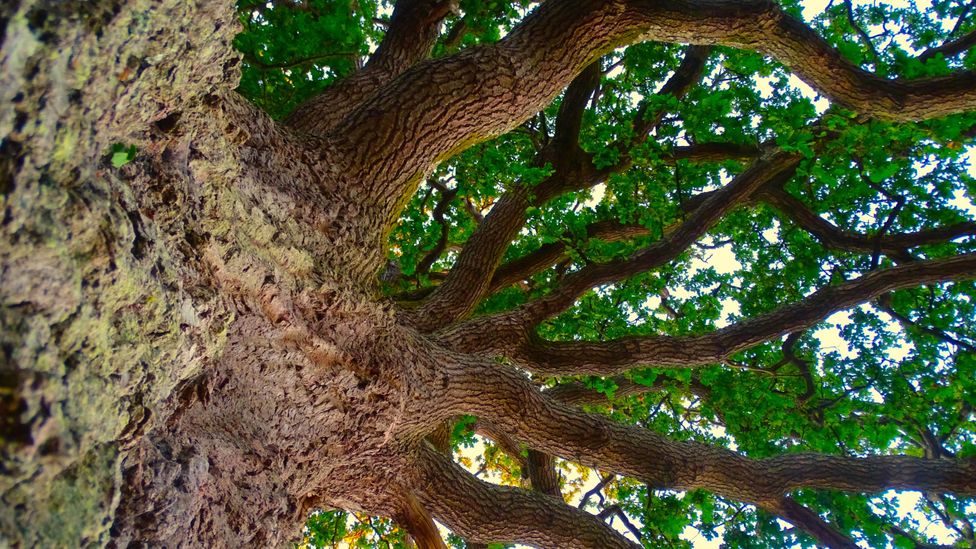
The loss of trees from the earth would throw the climate off kilter (Credit: Getty Images)
The planet's climate would also exist drastically altered in the short and long term. Trees mediate the water wheel by acting equally biological pumps: they suck h2o from the soil and deposit it into the atmosphere by transforming it from liquid to vapour. By doing this, forests contribute to cloud formation and precipitation. Trees likewise forestall flooding by trapping water rather than letting it blitz into lakes and rivers, and by buffering littoral communities from tempest surges. They go on soil in place that would otherwise launder away in pelting, and their root structures help microbial communities thrive.
Without trees, formerly forested areas would become drier and more prone to extreme droughts. When pelting did come, flooding would be disastrous. Massive erosion would impact oceans, smothering coral reefs and other marine habitats. Islands stripped of trees would lose their barriers to the ocean, and many would be washed away. "Removing trees means losing huge amounts of country to the ocean," says Thomas Crowther, a global systems ecologist at ETH Zurich in Switzerland and lead author of the 2015 Nature written report.
In addition to mediating the water cycle, trees have a localised cooling effect. They provide shade that maintains soil temperatures and, equally the darkest matter in the landscape, they absorb estrus rather than reflect it. In the process of evapotranspiration, they also channel energy from solar radiation into converting liquid water into vapour. With all of those cooling services lost, about places where trees formerly stood would immediately go warmer. In another study, Prevedello and his colleagues found that consummate removal of a 25 sq km patch of forest acquired local annual temperatures to increase by at least 2C in tropical areas and 1C in temperate areas. Researchers have as well institute similar temperature differences when comparing forested and open areas.
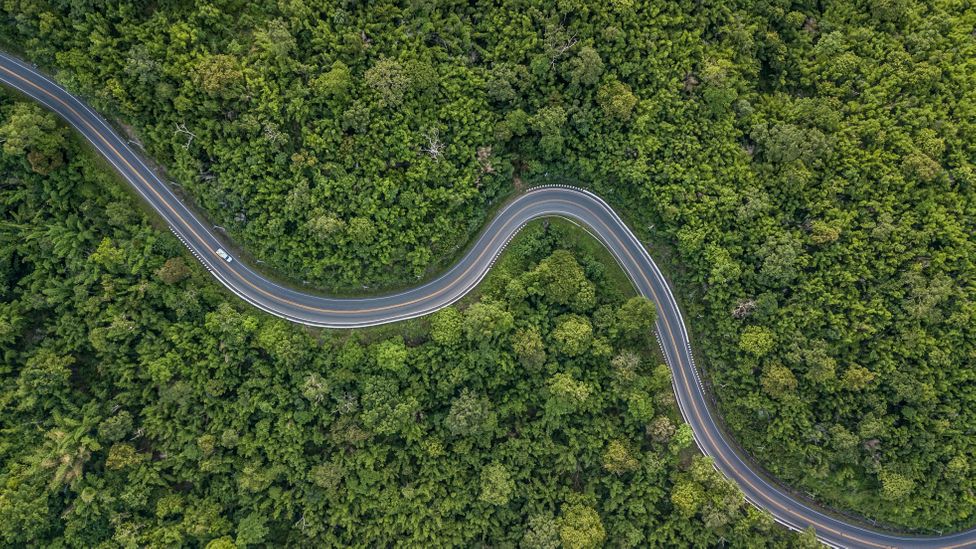
Deforestation is a significant correspondent to global carbon emissions, according to the IPCC (Credit: Getty Images)
On a global calibration, copse combat warming acquired by climate alter by storing carbon in their trunks and removing carbon dioxide from the temper. Deforestation already accounts for 13% of full global carbon emissions, co-ordinate to an IPCC written report published in August, while land employ change in full general accounts for 23% of emissions. With all copse on the planet wiped out, previously forested ecosystems "would become only a source of emission of carbon dioxide into the atmosphere, rather than a sink," says Paolo D'Odorico, a professor of environmental science at the University of California, Berkeley.
Over fourth dimension, Crowther predicts that we would run into the release of 450 gigatonnes of carbon into the atmosphere – more than doubling the amount that humans have already contributed. For a while, this event would be get-go by smaller plants and grasses. Only while smaller plants capture carbon at a faster charge per unit than trees, they also release it more chop-chop. Somewhen – perhaps over a few decades – these plants would no longer be able to head off the coming warming. "The timeline depends on where yous are, since decomposition is much faster in the tropics than the Arctic," D'Odorico says. "Simply once carbon dioxide is in the atmosphere, it doesn't matter if it'due south coming from hither or from in that location."
As decomposition slowly detonated this ticking carbon bomb, the Globe would transform into a "vastly" warmer planet, Crowther says – the likes of which we haven't experienced since before copse evolved. Big amounts of carbon would likewise run into the oceans, causing extreme acidification and killing possibly everything but jellyfish, he says.

Trees assist to cool the local climate by absorbing heat. Without them, temperatures would soon begin to rise (Credit: Getty Images)
Humanity'due south suffering would begin well before catastrophic global warming took identify, however. The increased rut, disruption to the water cycle and loss of shade would take a deadly toll on billions of people and livestock. Poverty and death would also descend on many of the 1.6 billion people who currently rely direct on forests for their livelihoods, including for harvesting nutrient and medicine. More people still would find themselves unable to cook or estrus their homes, given the lack of firewood. Effectually the world, those whose piece of work revolves around trees – whether as loggers or paper-makers, fruit growers or carpenters – would all of a sudden exist jobless, devastating the global economy. The timber sector alone provides employment to xiii.2 million people and generates $600bn (£500bn) each twelvemonth, according to the Globe Bank.
Agricultural systems would likewise swing wildly out of whack. Shade crops like coffee would drastically decline, as would ones that rely on tree-home pollinators. Due to temperature and precipitation fluctuations, places that formerly produced crops would all of a sudden fail while others that were previously unsuitable might get desirable. Over time, though, soils everywhere would become depleted, requiring significant amounts of fertiliser for crops to survive. Farther heating would eventually render most places uncultivatable and unliveable.
On top of these devastating changes would be health impacts. Copse clean the air past absorbing pollutants and trapping particulate matter on their leaves, branches and trunks. Researchers from the Us Forest Service have calculated that trees in the US alone remove 17.4 million tonnes of air pollution each year, a service valued at $6.8bn (£five.6bn). At least 850 lives are saved as a result and at least 670,000 cases of acute respiratory bug are avoided.
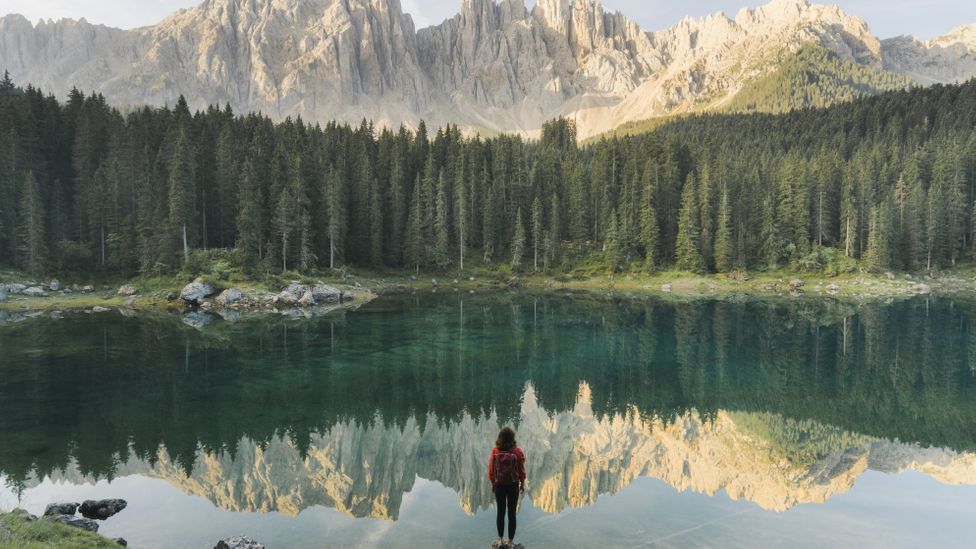
Trees help to absorb air pollution by trapping particulates in their tissues (Credit: Getty Images)
D'Odorico adds that nosotros might besides encounter outbreaks of rare or novel diseases transferred from species that we unremarkably do non come into contact with. He and his colleagues found that Ebola's transfer into humans occurs in hotspots of forest fragmentation. A sudden loss of forests everywhere could trigger a temporary spike in our exposure to zoonotic infections such equally Ebola, Nipah virus and Due west Nile virus, he says, as well as to mosquito-borne diseases like malaria and dengue fever.
A growing body of research likewise points to the fact that trees and nature are skilful for our mental wellbeing. New York State's Department of Environmental Conservation, for example, recommends walking in forests to boost overall health, including for reducing stress, increasing energy levels and improving sleep. Trees also seem to aid the trunk recover: a famous study from 1984 revealed that patients recuperating from surgery experienced shorter infirmary stays if they had a green view rather than one of a brick wall. More than contempo research revealed that spending time effectually grass and trees reduces symptoms in children with attention deficit hyperactivity disorder, and numerous studies have also documented a positive correlation betwixt green space and kids' performances in school. Trees may even help to combat criminal offense: one written report establish that a 10% increase in tree embrace was associated with a 12% reduction in criminal offense in Baltimore.
"So many things that lead to physical and mental wellbeing issues tin can exist significantly reduced past spending time in a forested environment," says Kathy Willis, a professor of biodiversity at the University of Oxford. "That's why 'forest bathing' is now a medical prescription in Japan."

Trees play a vital role in many cultures - if lost, they would exist deeply mourned (Credit: Getty Images)
The loss of trees would besides be mourned on a deep, cultural level. Copse are staples of countless childhoods and feature heavily in art, literature, poetry, music and more. They have factored into animistic religions since prehistory and play prominent roles in other major religions good today. Buddha attained enlightenment after sitting beneath the Bodhi Tree for 49 days, while Hindus worship at Peepal trees, which serve every bit a symbol for Vishnu. In the Torah and Old Testament, God makes trees on the third twenty-four hour period of creation – even before animals or humans – and in the Bible, Jesus dies on a wooden cross built from trees.
"A lot of people view forests with dollar signs," Lowman says. "But we've never come up with a monetary figure for the spiritual importance of forests."
All told, human beings would struggle to survive in a world without copse. Urbanised, Western lifestyles would quickly go a thing of the by and many of united states would die from starvation, oestrus, drought and floods. Surviving communities, Lowman believes, would probable be those that take retained traditional knowledge nearly how to live in treeless environments, such as Australia's Aboriginals. Crowther, on the other mitt, suspects that life would but persist in a Mars-like colony, enabled by technology and entirely divorced from the beingness we have always known.
"Even if we could live in a world without trees, who would want to?" Crowther says. "This planet is unique from everything else we currently know in the universe considering of this unexplainable thing called life, and without trees, almost all of information technology would merely be screwed."
--
Bring together one meg Hereafter fans by liking us on Facebook , or follow united states on Twitter or Instagram .
If you liked this story, sign up for the weekly bbc.com features newsletter , called "The Essential List". A handpicked selection of stories from BBC Time to come, Culture, Worklife, and Travel, delivered to your inbox every Friday.
Source: https://www.bbc.com/future/article/20190911-what-would-happen-if-all-the-worlds-trees-disappeared
Posted by: bonnerwerve1939.blogspot.com

0 Response to "If We Don't Stop Deforestation, What Percentage Of Animal Species May Die?"
Post a Comment